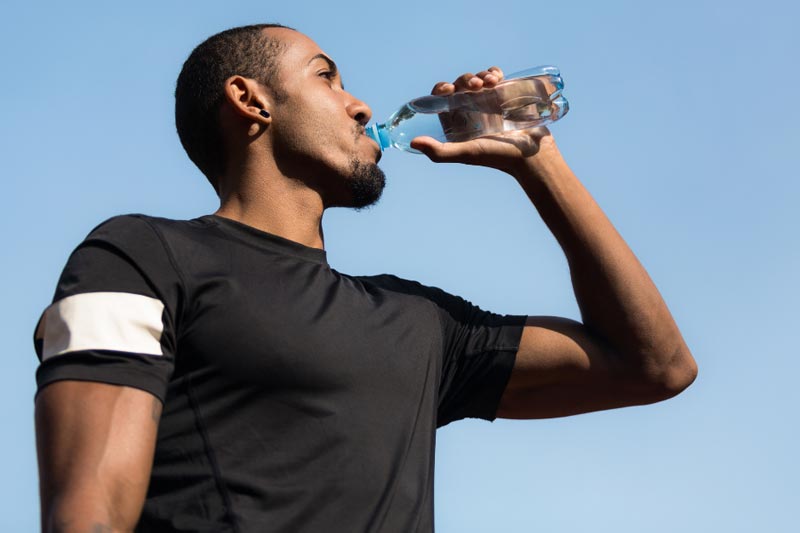How important is hydration?
We are constantly being told to drink water and stay hydrated. But how much is enough? Do drinks with water in them hydrate or is it only pure H2O? What kind of water is best? I have been told to “drink half your body weight in ounces daily” or “drink eight glasses of water a day.” I often wonder how these standards can be correct for someone who is 5’3” 120 pounds and also correct for someone 6’4” 260 pounds. The other puzzling thing for me is how do we measure hydration? So many questions…
I read somewhere that thirst is a sign you are dehydrated. Hopefully, someone is working on an app to alert us when the volume of water in our body approaches a low level before we get too thirsty. Since my degree is in health administration, I have taken enough anatomy, physiology, and biology classes to get it. Water is crucial to our survival. Yet I didn’t really get it until one day when I was at the bedside of a dear friend who survived a major cerebral event. I heard the nurse say “I need you to drink more water. It is important to keep your blood from getting thick.” That was my “aha” moment. Being well hydrated might lower my chances of a stroke!
There are lots of published studies about exercise and hydration. One of these written by Marie Spano and published in “Today’s Dietician” suggests it is a good idea to have an understanding of how the body protects itself from overheating and problems caused by dehydration:
“Before learning how to achieve and maintain hydration, it’s good to know the consequences of fluid losses and how the body inherently protects itself. During exercise, muscular contractions generate heat, which must be dissipated to avoid an excessive rise in core body temperature, a dangerous drop in blood volume and subsequent cardiovascular strain, and altered metabolic and central nervous system functioning. Sweat helps the body cool down, although excessive sweat and electrolyte losses can impair athletic performance and result in health complications.”
According to the University of Connecticut’s Korey Stringer Institute (UCONN KSI), to measure hydration and ensure athletes are well hydrated or in a state of “euhydration” several methods are currently in use. Only one is practical for someone who is not a healthcare professional though, monitoring urine color. The others are lab tests; measuring Urine Specific Gravity(USG)/Osmolality(UOsmol), and measuring components of blood plasma.
The type of fluid we drink to combat dehydration does matter. Sometimes water is not enough. UCONN KSI also says, “Intense endurance exercise, especially in the heat leads to both dehydration and depletion of glucose and electrolytes. Fluid-energy-electrolyte replacement beverages (i.e., sports drinks) improve endurance because they satisfy these needs, particularly in hot and humid environments with exercise lasting over one hour. Electrolytes also stimulate thirst and promote absorption in the gastrointestinal (GI) tract.”
Based on my limited research, hydration needs vary from person to person and are influenced by many factors. For a non-athlete like me, it may be enough to be mindful about drinking water by picking one rule, eight glasses a day or half my body weight in ounces, and sticking to it. When exercising, it is even more important to be well hydrated. Drink water before, during, and after each workout.
References
https://www.todaysdietitian.com/enewsletter/enews_0416_01.shtml

